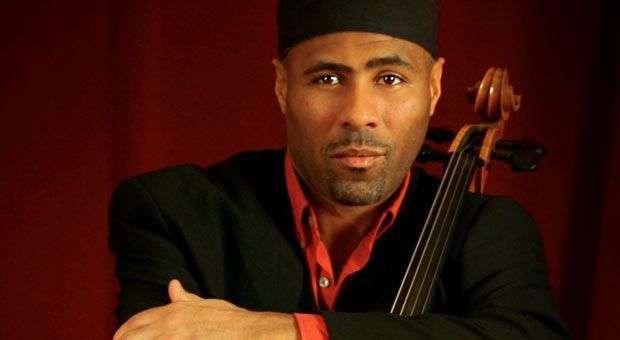It is interesting to know the teaching book of every professor. We propose you to unravel the experiences in this field and in the one of interpretation of the unique Cuban artist Douglas Vistel who lives in Berlin, Germany. The important cellist undertakes significant projects in that European city and thanks to Leo Brouwer Chamber Music Festival he will be performing soon in Havana.
When questioned on how to define the cello and its teaching process in a comprehensive way, Vistel claims that this is “an instrument with a proven history of about 500 years, i.e., it is as old as young is the history of our country.”
Douglas told OnCuba that “during that time the cello has undergone large and small changes. The composers have increasingly improved, so cellists have increased their technical and interpretative level and have had also to adapt themselves to the needs and new challenges. We may talk about several cello masters and different schools that produced, in due course, great virtuosos, soloists, orchestral musicians and educators. Cellists like David Popper, Pablo Casals, Mstislav Rostropovitsch and Yo Yo Ma contributed through their interpretations and their personalities to popularize the image of the instrument.
“Today the cello, besides being recognized as an instrument of beautiful sound, has established itself as a soloist instrument and it is in line with the rhythm in which we are living with internet and globalization, etc., Cello learning has stopped being something of secrets and wonders and it is successfully based on methodical methods and well-founded knowledge, as demonstrated by an example which says it all to me – if at the beginning of the 20th century the cellists that at world level were able to play the famous Antonin Dvorak´s concert could be counted with your hands, today the conservatories graduate each semester dozens of students with this concert which until very recently was considered the top of literature for cello ” .
Douglas Vistel, who is very p assionate, as shown in his answers, declines to give a detailed assessment of the development of cello on Cuba because as he confesses “in the last eight years I have been engaged in the arrogant (ambitious?) task of creating precisely in Berlin -which we all know has a very rich musical tradition, and in the opinion of many is the strongest cultural center in Europe, a space which I think that the cello as instrument, the chamber music and, above all, the cello music lovers deserve.
“There are several festivals and concert halls worldwide where the public, lover of music for cello, can, at regular intervals, enjoy cello, cellists and their music. My goal has been to create the place (unique in the world as far as I know) where day by day, at any time, knowledgeable person or not can enjoy the beauty of the cello repertoire. The price I had to pay is disinformation and lapse of concentration or ‘desenchufe’, as they say in Cuba “.
-Your work with Almuth Krausser highlights for that combination of piano and cello when interpreting classical music. Why don’t you tell us about this work and the Cello C apriccioso Project?
-Actually the combination of cello and piano is nothing new. With Beethoven’s five Cello-sonatas (1796) began an extensive list of works that exploit the technical and sonorous possibilities of these two instruments together.
” On this list are, of course, illustrious composers as Frederic Chopin, Johannes Brahms, Edvard Grieg, (Johann or Richard) Strauss, Dmitri Schostakowitsch, and Sergei Prokofiev, among others. Until recently, our work as a duo was around that repertoire. For Cello Capriccioso project is more interesting however that in the last four centuries each composer, famous or unknown, has written at least one piece for cello and piano, which would mean that there are thousands of works. But, where are those works? Who plays them? Where can they be heard? This is the basis and starting point of Cello Capriccioso Project: works by composers such as Davidoff, Popper, Goltermann, Cassadó…
“We do not intend to play all the works (pieces) that have been written until today for our format , nor we just play only the originals, but we do are dedicated to gather and integrate to our repertoire the greatest possible number of ‘forgotten’ pieces. And to guarantee that these works (compositions or scores) to flourish and reach the audience, we have created Vistel ‘s cellomusiksalon, a small concert hall dedicated to music for cello, in the middle of Berlin . “
-The chamber music has amazing formats and your proposal is integrated into that concept, how important is to seduce the public for them to be interested in this type of work?
-The cultural institutions around the world are constantly facing the problem of the loss of public. A symphonic orchestra, a chamber orchestra or a military band can attract the public with fanfare and fireworks, without losing their image. For a chamber music format, which generally works in elite spaces, it is vital to have an educated public that is able to distinguish and follow the nuances of musical performance. And educating an audience is a long-term work. Working in Vistel’s cellomusiksalon has taught me that the general public appreciates when you give them the opportunity to learn and, above all, if they learn to enjoy. “
– What will we see on Douglas Vistel at Leo Brouwer Chamber Music Festival?
-I hope to share with the Cuban public my experiences and achievements in the field of chamber music and music for cello. The program will include spectacular works that require technical mastery and interpretative and musical maturity, a program (repertoire) that gives us the chance to show off the skills acquired and cultivated for more than 20 years of joint work. “
* We thank the Office of the maestro Leo Brouwer for the coordination of this interview.










